Women’s Entrepreneurship Day 2025
Celebrating the Power of Female Entrepreneurship and Leadership
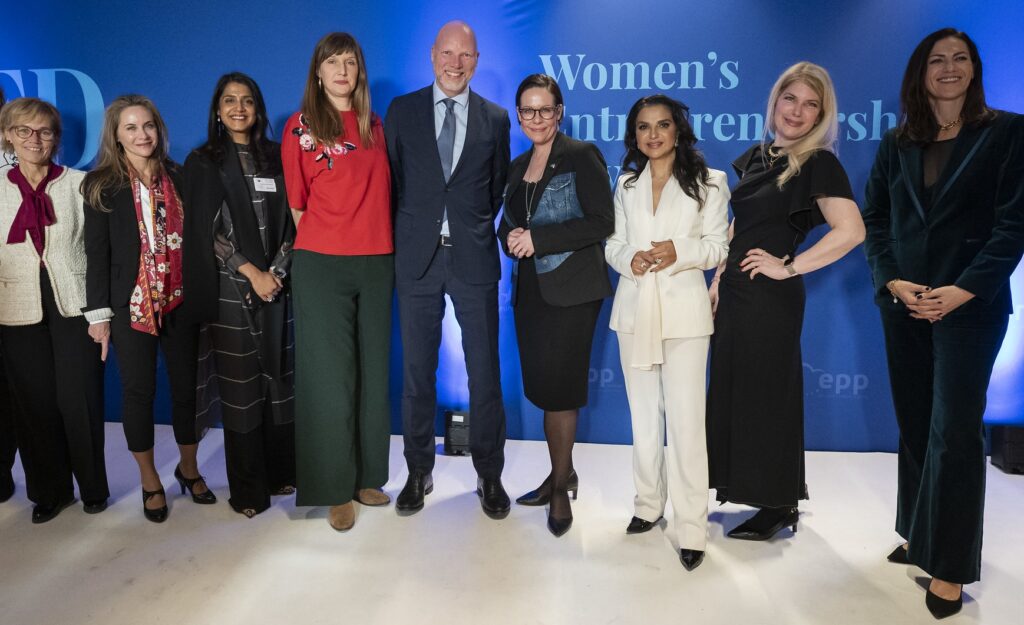
On 19 November 2025, SME Europe of the EPP with EPP Women held the second edition of Women’s Entrepreneurship Day (WED) at the European Parliament in Brussels. Hosted by Jörgen Warborn MEP, President of SME Europe, this initiative was created as an effort to bring a fresh perspective on how we see women’s leadership, entrepreneurship, and influence in Europe and give space to real stories and exchange of ideas.
The evening was moderated by Maithreyi Seetharaman, Founder and Editor of The Chief Brief. Maithreyi’s opening was setting a clear frame: Europe has made progress, but the landscape for women in leadership remains uneven. She urged the room to look at the world “as it really is,” not as ideals alone.
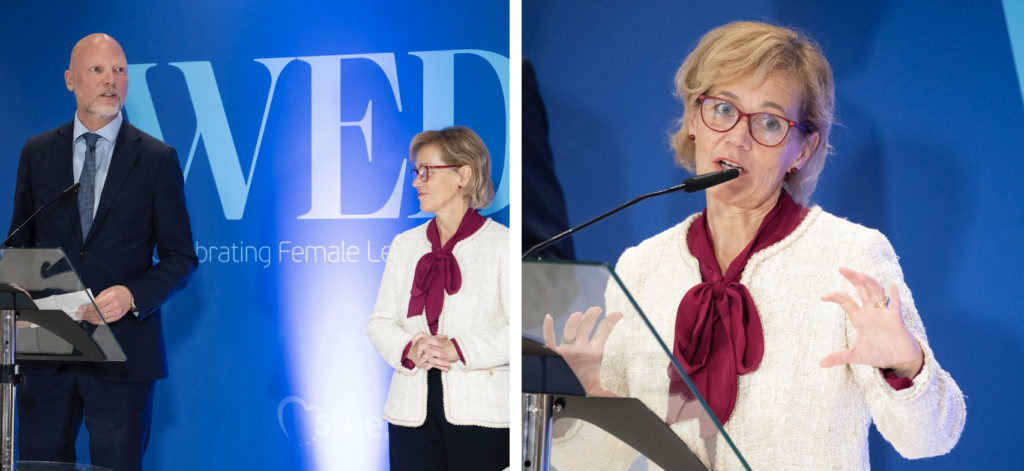
In their welcome addresses, Jörgen Warborn MEP, President of SME Europe, highlighted the economic dimension: Europe cannot close its competitiveness gap unless it unlocks women’s entrepreneurial potential.
Rozalia Biró MP, President of EPP Women, spoke of women’s ability to “lift and lead,” stressing that women’s perspectives are indispensable to political and economic resilience.
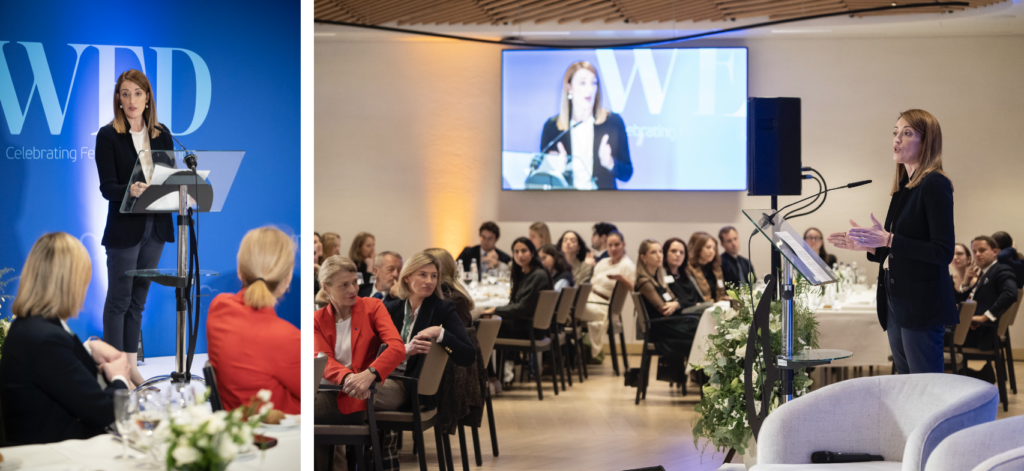
President Roberta Metsola keynote message combined urgency and optimism. She reflected on the need to dismantle practical barriers that still hinder women’s participation, from patchy childcare to outdated labour frameworks. She celebrated the Parliament’s recent approval of proxy voting during pregnancy and maternity. Her message emphasised courage, visibility, and the importance of political will: Change does not happen on its own — it happens because we push for it.
Maria Malmer Stenergard, Minister of Foreign Affairs of Sweden, shared an inspiring account of how economic empowerment transforms entire communities, illustrating how investment in women has a multiplier effect – from refugee camps to advanced economies. She tied Sweden’s prosperity directly to its long-term commitment to gender equality and highlighted the persistent gender gap in access to capital and the need for financial ecosystems that recognise women as creators, investors, and leaders.
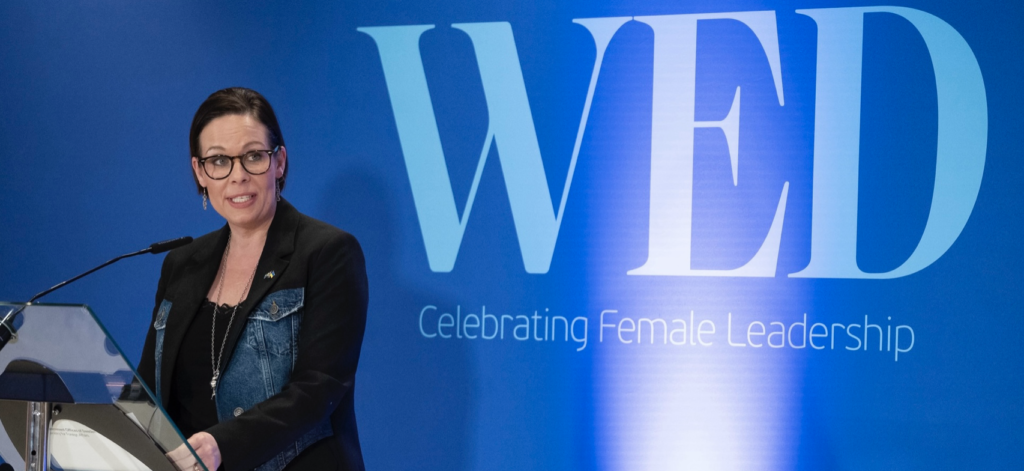
With the keynotes setting a powerful frame, the evening continued with fireside conversations that brought personal stories and sector insights into focus.
Nina dos Santos, Anchor, Correspondent & Host, explored the shifting media landscape: collapsing trust in legacy media, the rise of creator-driven platforms, and the heightened visibility, and vulnerability, of women leaders online. Nina’s advice: diversify communication platforms, stay authentic, and remember that “visibility without strategy is fragile.”
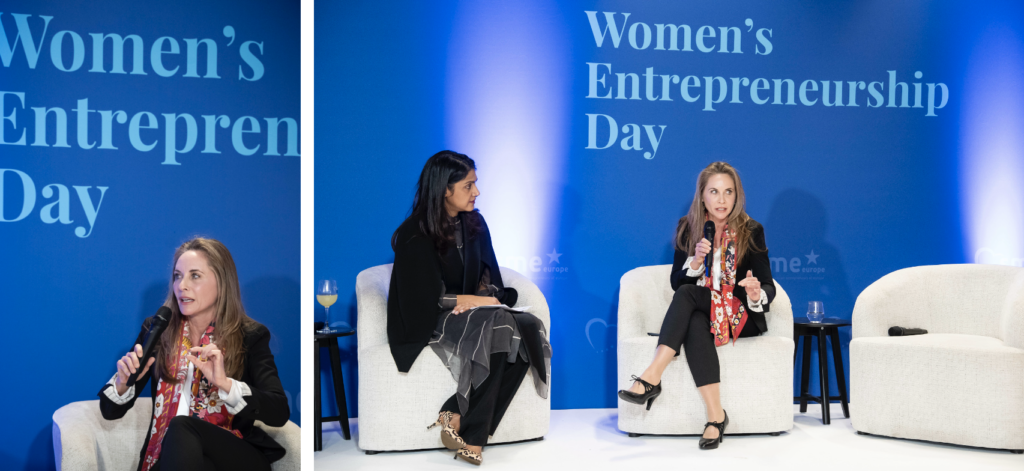
Michelle Harrison, President of Verian Group and the co-creator of the Reykjavik Index for Leadership presented the latest results of the Reykjavik Index for Leadership, warning that perceptions of women as leaders have declined across the G7, especially among young men. She identified “re-traditionalisation” in multiple sectors and stressed the urgent need for institutional resilience.
Shoka Åhrman, Economist, Author, and Financial Commentator, Strategist and Savings Economist at SPP Pension & Försäkring, discussed the economic dimension: risk perception, the gender wealth gap, and the coming shift as more wealth passes into the hands of women. She called for structural reforms — especially in access to credit, guarantees, and financial literacy — to ensure women can invest, scale, and lead.
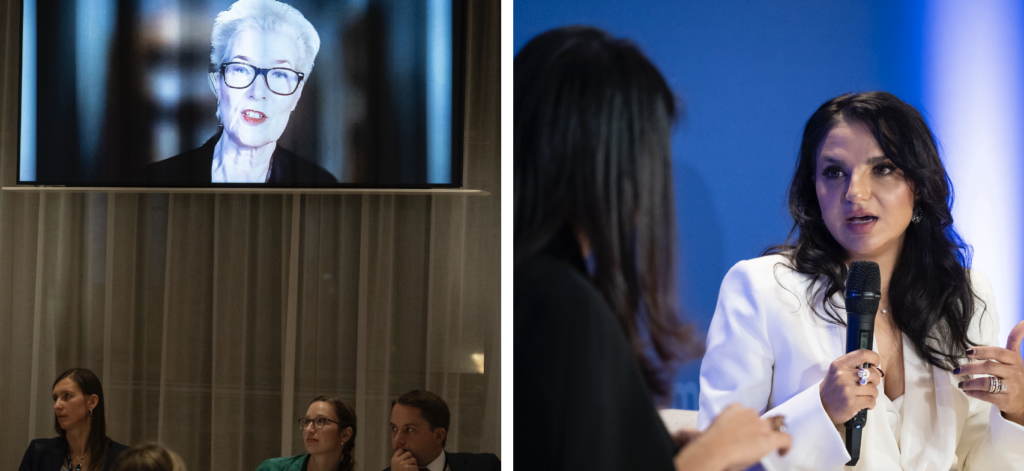
In her special address, Dolors Montserrat MEP, Secretary General of the European People’s Party, celebrated women entrepreneurs as the “engine that moves Europe” and underlined the EPP’s long-standing leadership in advancing women in politics, public service, and business. She called for more women with real-world entrepreneurship experience to enter decision-making roles and shape Europe’s economic future.
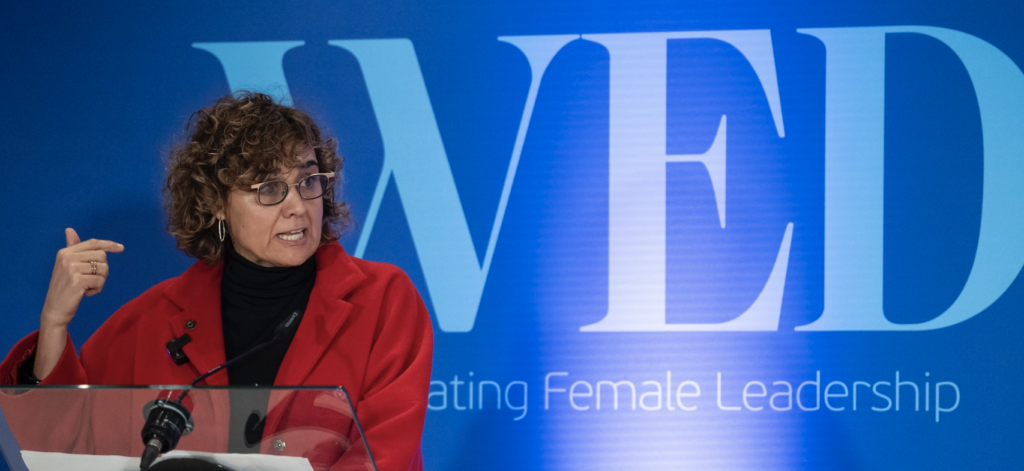
Ana Miguel Pedro MEP,
Ana Miguel Pedro, MEP, spoke about the realities women face when entering political life — the pressure to excel, to balance roles, and to prove themselves twice over. She highlighted that while women now hold nearly 39% of seats in the European Parliament, representation remains uneven across Europe. Ana emphasised that women are not only participating in politics but reshaping it, bringing empathy, resilience, and a different kind of strength into public life. Her message was clear: women should not have to choose between ambition and family, and political systems must evolve to reflect the realities of those who lead.
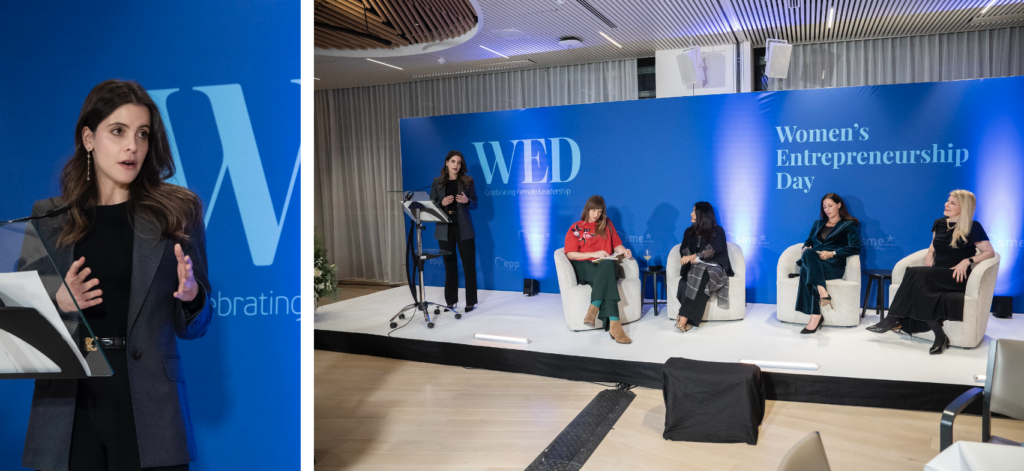
In the final conversation, Katrien Van den broeck, Co-fouder of ELECTA, author of „Confronting the 10 Traps of Power, a Survival Guide for Women (and men) in Politics“, Social Media and Campaign Expert; Liora Kern, CEO and Strategic Communication Expert, The Think Room, Communication Strategist, Growth Marketer & Storyteller; and Charlotte Kan, Global Moderator and Editor, President of Humanity Diaspo, exploredhow women in politics and leadership can strengthen their voice in an era of rapid technological disruption. The discussion touched on the need for resilience and adaptation in the face of online toxicity, while underscoring that authenticity and a clear sense of purpose remain the strongest foundations for trust. The speakers reflected on the power of emotionally resonant visibility — communication that feels human, relatable, and grounded — and on the opportunities and risks introduced by AI and algorithm-driven platforms. Together, they painted a picture of political communication that is shifting toward deeper storytelling, stronger emotional connection, and more intentional engagement across the digital ecosystem.
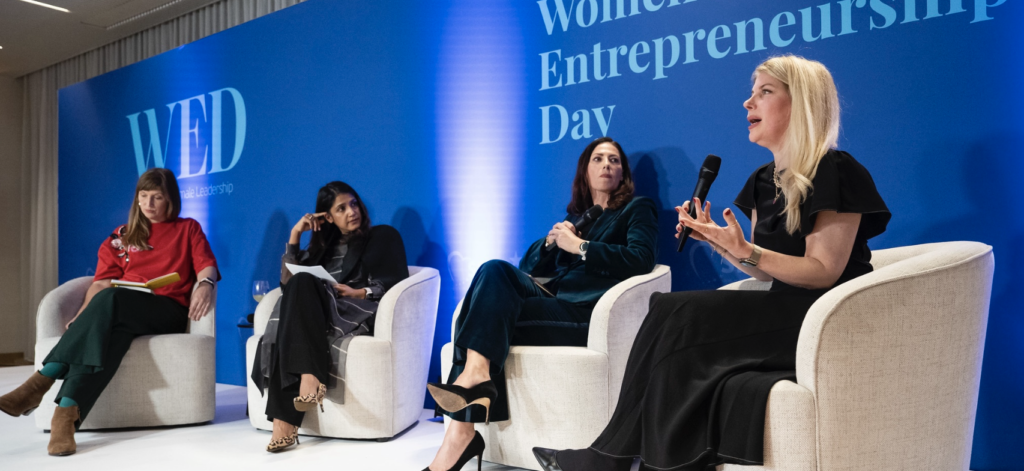
In his closing remarks, Jörgen Warborn thanked the speakers and participants for an evening of honest dialogue and reflection. He highlighted the common threads running through every conversation: that women’s potential remains one of Europe’s greatest untapped assets; that confidence is shaped not only by individuals, but by the systems around them; that policy, data, and storytelling must work together rather than in isolation; and that Europe’s future competitiveness depends on empowering women to lead and build without unnecessary obstacles.
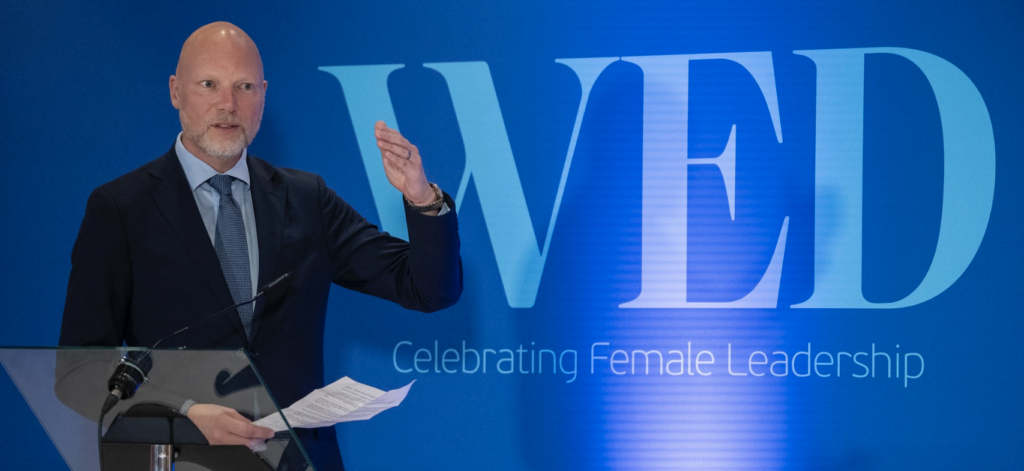
Women’s Entrepreneurship Day 2025 demonstrated that empowerment is not abstract — it is structural, economic, and deeply human. The event reinforced a collective commitment to a Europe where women’s leadership is not an exception, but a driving force.
SME Europe and EPP Women will continue to build on the insights of the evening, shaping policies and narratives that allow women to lead with confidence and to shape Europe’s future at every level, from local businesses to European institutions.
The recording of the event can be accessed here.

